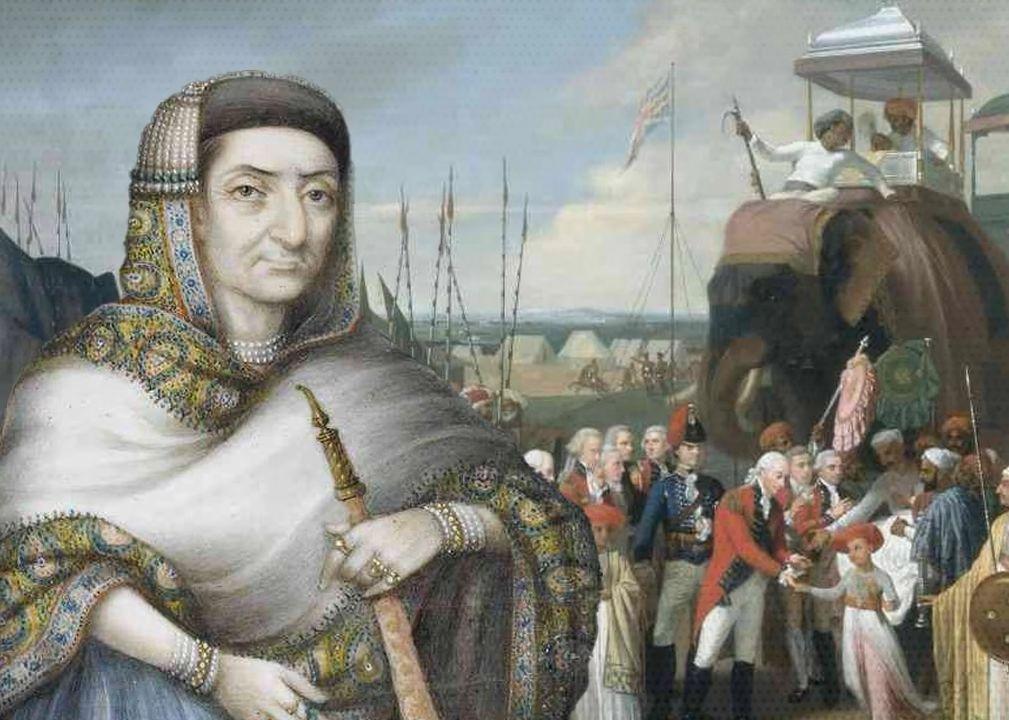
Women Entrepreneurs in Indian History: Begum Samru & Jibhabu
In a patriarchal society, where women were often relegated to the domestic sphere, a select few dared to defy convention and forge their own paths. Two such trailblazers were Begum Samru and Jibhabu, whose remarkable stories of entrepreneurship, diplomacy, and strategic leadership have left an indelible mark on Indian history.
Begum Samru: The Diplomat and Estate Manager
Born in 1753 as Imhoff’s mistress, Begum Samru was a German courtesan who rose to become the ruler of a 621-square km estate in Sardhana, Uttar Pradesh. Her remarkable journey began when she married Sir Walter Reinhardt, a British army officer, in 1779. After his death, she married Major Jean Law, a French officer, and later, Raja Ghanshyam Singh, the ruler of Sardhana.
Begum Samru’s diplomatic prowess and business acumen enabled her to navigate the complexities of the colonial era. She skillfully managed her estate, which was a strategic location for the British East India Company. Her diplomatic skills helped her maintain good relations with the British, while also protecting her estate’s interests.
Under her leadership, the estate flourished, and she became a respected figure in the region. Begum Samru’s legacy extends beyond her estate; she is also remembered for her charitable works, including the establishment of a hospital and a school in Sardhana.
Jibhabu: The Negotiator and Restorer of Family Business
Born in 1791 in Gujarat, Jibhabu was a member of the Patel community, who were traditional merchants and traders. Her family’s land revenue business was facing significant challenges due to the rise of the East India Company’s colonial powers. Determined to restore her family’s business, Jibhabu embarked on a mission to negotiate with the East India Company.
Through her strategic leadership and financial expertise, Jibhabu successfully negotiated a deal with the Company, enabling her family to retain control over their business. Her efforts not only restored her family’s fortunes but also earned her the respect of her community.
Jibhabu’s story is a testament to the power of women in Indian history. Despite the challenges posed by colonialism, she refused to be intimidated and instead, used her skills to achieve her goals. Her legacy extends beyond her family’s business; she is also remembered for her contributions to the development of Gujarat’s economy.
Lessons from the Past
The stories of Begum Samru and Jibhabu offer valuable lessons for entrepreneurs and business leaders today. Their ability to adapt to changing circumstances, think strategically, and negotiate effectively are qualities that are still relevant in today’s fast-paced business environment.
Moreover, their stories demonstrate that women have always played a significant role in shaping India’s history. It is essential to recognize and celebrate their contributions, rather than relegating them to the footnotes of history.
Conclusion
Begum Samru and Jibhabu were true pioneers in the world of entrepreneurship. Their remarkable stories of perseverance, diplomacy, and strategic leadership inspire us to rethink the role of women in Indian history. They remind us that women have always been capable of achieving greatness, despite the odds.
As we continue to celebrate the contributions of women entrepreneurs, it is essential to remember the sacrifices and challenges they faced. The stories of Begum Samru and Jibhabu serve as a powerful reminder of the importance of recognizing and celebrating the achievements of women in entrepreneurship.
Source:
https://ascendants.in/business-stories/pioneering-women-entrepreneurs-history/






